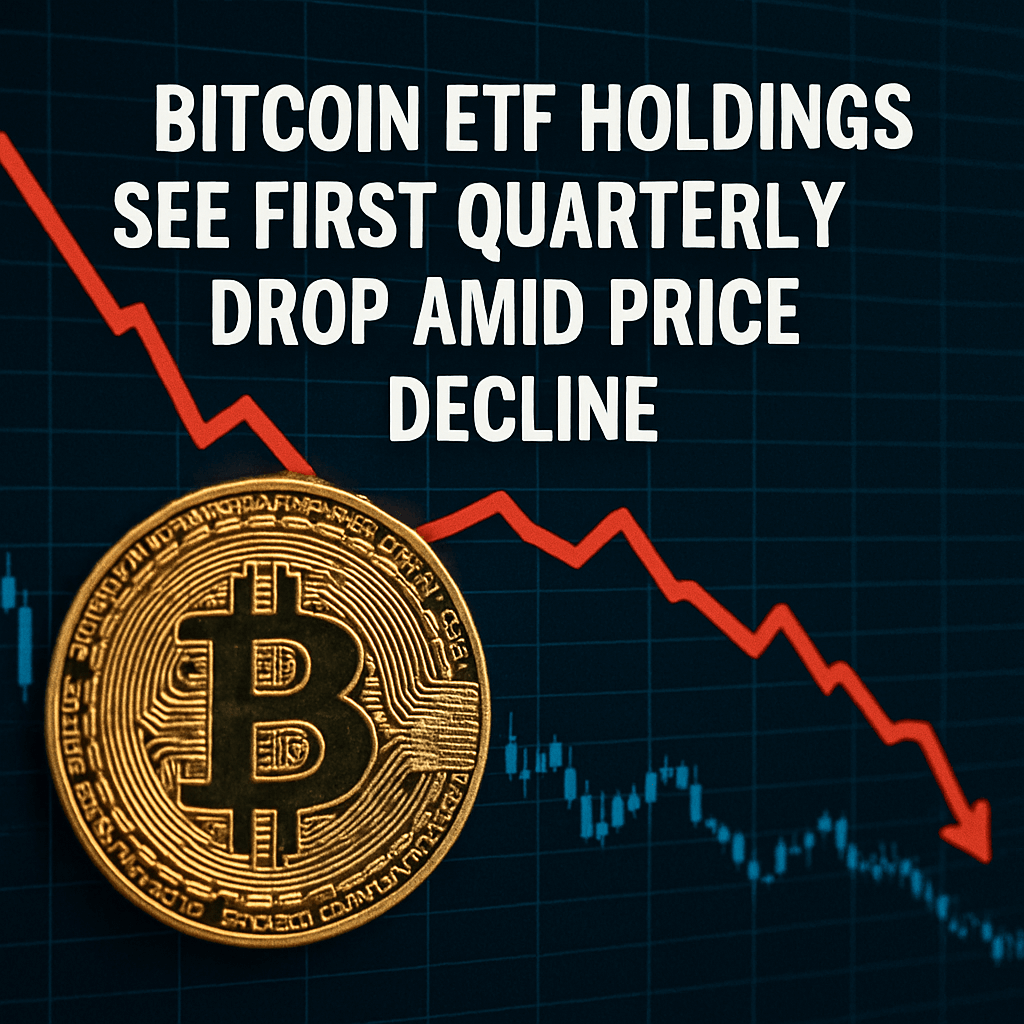Bitcoin ETF Holdings See First Quarterly Drop Amid Price Decline


According to a recent report from CoinShares, institutional Bitcoin Exchange-Traded Funds (ETFs) have observed a notable decline in holdings for the first time in the recent quarter. This downturn can be largely attributed to price depreciation rather than significant selling pressure from investors. As Bitcoin (BTC) struggles to maintain its footing within a volatile market, institutional sentiment appears to be adjusting accordingly.
Analysis of Institutional Holdings
Throughout the previous quarter, institutional BTC ETF holdings declined as the price of Bitcoin fell below critical support levels. CoinShares’ data indicates a decline of approximately 5.4% in institutional holdings, with total assets under management (AUM) decreasing from $11.4 billion to $10.8 billion.
This shift emphasizes a market response to the broader economic landscape, where investors have been reacting to rising interest rates and regulatory scrutiny that have negatively impacted risk assets, including cryptocurrencies.
Factors Influencing Price Depreciation
- Rising Interest Rates: The Federal Reserve has maintained a policy of tightening monetary policy, increasing interest rates to combat inflation. This has made traditional bond markets more attractive for institutional investors, diverting capital away from riskier assets such as Bitcoin.
- Market Sentiment: Negative market sentiment has been fueled by various factors, including regulatory developments and macroeconomic instability, prompting cautious behaviour among institutional investors.
- Profit-Taking: A segment of investors may also be cashing in on profits after substantial price hikes seen earlier in the year, leading to a natural pullback in ETF asset management numbers.
The Future of Bitcoin ETFs
The decline in institutional holdings raises pertinent questions about the future of Bitcoin ETFs. Critical factors that could influence upcoming performance include:
- Regulatory Clarity: As the U.S. Securities and Exchange Commission (SEC) continues to develop a framework for crypto regulation, clearer guidelines may boost institutional confidence and attract new investments into Bitcoin ETFs.
- Market Direction: The trajectory of Bitcoin’s price is immensely pertinent to institutional investors. If Bitcoin can reclaim its previous highs and stabilize, it may reinvigorate interest and inflow into ETFs.
- Innovation in Products: Financial products that offer additional functionalities, such as Bitcoin futures ETFs, could broaden the appeal of cryptocurrency investments for institutions.
Conclusion
The recent decline in institutional Bitcoin ETF holdings marks a significant moment in the cryptocurrency market, highlighting the delicate balance between investor sentiment and market conditions. As institutions navigate a complex economic environment, the future of Bitcoin ETFs remains uncertain. Stakeholders will be keenly monitoring trends, regulatory shifts, and Bitcoin’s price movements in the coming months to gauge if this is merely a seasonal adjustment or a more profound trend.
Experts are divided on whether this decline indicates a long-term bearish trend or is a temporary correction. Ongoing analysis will be crucial as institutions weigh their options in this evolving market.